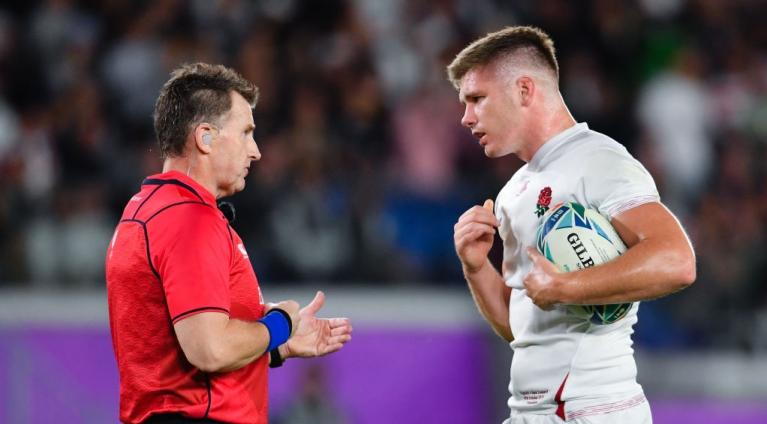Ex-referee Nigel Owens breaks silence on Owen Farrell red

Former referee Nigel Owens insists rugby is in “big trouble” if Owen Farrell’s dangerous tackle against Wales is not viewed as a sending off offence.
Farrell faces an independent disciplinary panel early next week after World Rugby appealed against the decision to downgrade his red card for a high shoulder-led challenge on Taine Basham to yellow.
England’s captain has received impassioned support from his head coach Steve Borthwick and Ireland boss Andy Farrell, his father, amid an outcry over the original hearing’s failure to issue a ban.
Owens, who oversaw 100 Tests from 2003 to 2020, believes Farrell should be punished for the tackle while warning the game of the repercussions if he is cleared once again.
“Owen Farrell is a great player who I have a huge amount of respect for,” the Welshman told Wales Online.
“But he has a history of making this kind of tackle, he’s been punished before and perhaps got away with a couple too.
“The referee and everybody at home watching the game would have been looking at that incident and going through their checklist.
“Do we have foul play? Yes, we do. Do we have contact with the head? Yes, we do. Do we have a high degree of danger? Yes, we certainly do. Do we have mitigation? In my view, no we don’t.
“I don’t think there was any late change from Basham which Farrell could not adjust to, he was the only player contributing to the action of the tackle.
“The key thing about mitigation here is that Farrell’s actions were always illegal. No matter what happened, he was always leading with the shoulder and not making an attempt to wrap for a legal tackle – so mitigation does not and should not play a part in the decision.
“For me, it’s a red card and whatever the judicial outcome may be, it still has to be a red card.
“We must stay strong and deal with acts of foul play. This is foul play, it’s an illegal charge, it’s not an accident. He’s always leading with the shoulder, he’s made contact with the head and, sorry, he’s got to take the consequences.
“The important message here to everybody involved in the game is, despite whatever reasons that the judicial officers had for their decision, this was a red card and should continue to be a red card for the good of player safety and the future of the game as well.
“Quite simply, if we don’t deal with actions like this as a red card offence, then the game is going to be in big trouble moving forward.”
Latest Comments
Ruder Cyber Tech Sleuths is here to help if you've experienced scams, phishing, or accidental transactions. We recognize the urgency and emotional impact of losing your digital investments, so we focus on transparency, efficiency, and client satisfaction.
Go to comments🔥
Go to comments